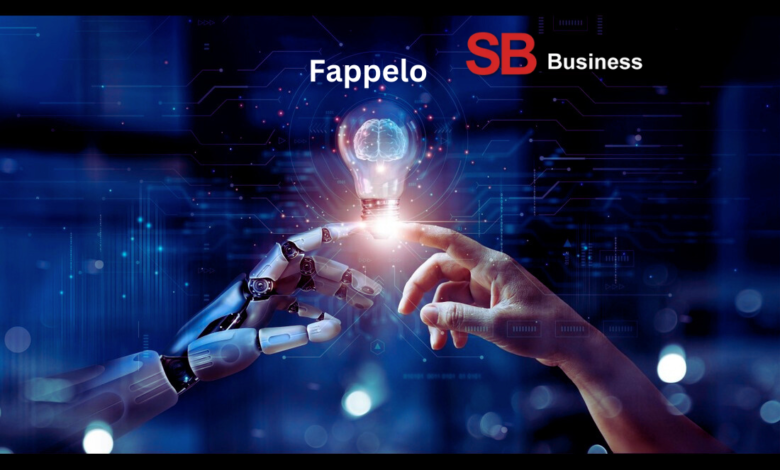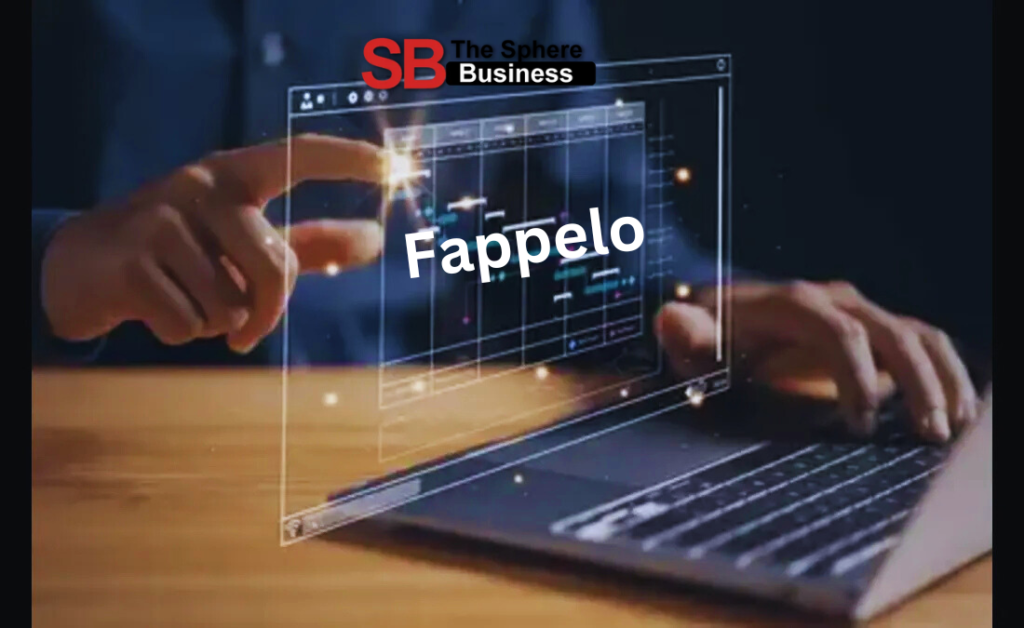Fappelo: Understanding the Evolution and Impact of This Trending English Keyword

The English language has evolved over time, adapting to new technologies, cultures, and trends. Fappelo constant evolution has given rise to new words, phrases, and expressions that enter our lexicon, often rapidly becoming widely recognized. One such emerging keyword is “fappelo.” While this term may seem unfamiliar to many, it has made its way into the social media sphere and has gained traction among certain online communities. In this article, we will explore the meaning, usage, and implications of the term “fappelo” within the context of the English language.
What is “Fappelo”?
At its core, “fappelo” is a slang term that has recently appeared within internet culture. It blends elements of popular slang with a playful twist, and while it may seem like a simple creation, it represents the way language is increasingly shaped by social media trends, memes, and internet communities.
The term “fappelo” is most often associated with humorous or casual online conversations. It is derived from “fap,” a colloquialism for masturbation, combined with “ello,” a playful variation of “hello.” This fusion creates a term that can be used in an array of contexts—often to greet others in a lighthearted or humorous manner.
However, it is important to note that slang terms like “fappelo” can have different meanings depending on the context and the group using them. As with any evolving piece of language, the interpretation of the term might vary among different online communities or even different regions. Understanding its current meaning requires keeping up with the constantly shifting trends of internet culture.
The Rise of “Fappelo” in Social Media
The proliferation of “Fappelo” is intrinsically tied to the way language spreads through social media platforms. As memes, trends, and viral content continue to shape our vocabulary, new words like “fappelo” emerge. Social media users, particularly on platforms such as Twitter, Reddit, and TikTok, enjoy coining phrases that reflect both humor and personal identity. The term “fappelo” encapsulates the way digital language adapts to these informal, often comedic exchanges.
It’s no surprise that “fappelo” has appeared in meme circles and online discussions. Its playful nature makes it an ideal fit for the irreverent humor that thrives on these platforms. The word’s brevity, paired with its cheeky tone, makes it memorable and easily shareable, contributing to its rise in popularity.
In many ways, “fappelo” mirrors the development of other internet-driven words. Much like the way terms such as “yeet,” “simp,” or “bruh” have spread across platforms, “fappelo” represents a moment in the continuous reshaping of language through internet culture. The term may not yet be widely recognized in formal contexts, but it is gaining momentum among younger audiences who shape the trajectory of online language.
Linguistic Evolution and the Internet’s Role
One of the fascinating aspects of “fappelo” is how it demonstrates the role of the internet in driving linguistic change. As a global communication tool, the internet has accelerated the spread of words and phrases that might have once been confined to specific geographic locations or subcultures. Today, however, terms like “fappelo” can quickly cross borders, moving from niche communities to mainstream usage.
This phenomenon can be seen in the way internet communities create their own lexicons and how these words often gain popularity far beyond their original context. When new terms like “fappelo” emerge, they are typically first used within tight-knit communities, such as meme creators or specific subreddit groups. As these communities grow and their content spreads to a broader audience, the terms begin to trickle out into the mainstream.
The ability of internet slang to spread quickly and influence mainstream language has profound implications. It highlights the power of digital platforms in shaping how people communicate, often in creative and humorous ways. It also demonstrates the flexibility of the English language in adapting to new modes of expression, especially among younger generations.
The Social Context of “Fappelo”
To fully understand the role of “fappelo” in the English language, it’s important to consider the social context in which it is used. Like many other internet phrases, “fappelo” is a playful and informal greeting. It reflects the tone of casual online conversations where users often engage in lighthearted banter, jokes, and meme-based humor.
The playful nature of “fappelo” also highlights the ongoing trend toward casualness in digital communication. As language becomes more informal and expressive, words like can be used to break down barriers between users, creating a sense of community through shared humor. This type of language is often used in spaces where people seek to connect with others in an unpretentious way, making it appealing in environments like group chats, comment sections, and memes.
It’s also interesting to note that “fappelo,” with its comedic undertones, can be a form of self-expression. The term allows individuals to express a sense of humor that may be playful or slightly irreverent. This use of humor as a bonding tool is another way in which internet slang contributes to social interaction and the creation of online communities.
Potential for “Fappelo” in Everyday Speech
While “fappelo” is currently a term that exists primarily within internet culture, its potential to enter everyday speech is an interesting point to consider. The evolution of slang words shows that internet-based language can eventually make its way into casual face-to-face conversations, with some words becoming accepted in more traditional settings.
If “fappelo” continues to gain traction among users, especially younger generations, it could make its way into spoken English in a variety of ways. While it is unlikely to become a formal or professional term, it may appear in casual interactions, particularly among those familiar with internet culture. Words like “fappelo” may start showing up in TV shows, movies, or even advertising as part of the ongoing trend of integrating internet language into mainstream media.

However, the continued evolution of language means that “fappelo” might soon be replaced by new, trendier terms, as internet culture is always shifting. Slang words, by nature, have a short lifespan, and many are replaced quickly as new trends emerge. Whether “fappelo” will endure remains to be seen, but its current rise offers a snapshot of the way language operates in the digital age.
The Impact of “Fappelo” on Language Innovation
Language is a dynamic system, constantly influenced by various factors, including technology, culture, and communication platforms. The term “fappelo” serves as an example of how language evolves in response to online behavior and cultural trends. This constant innovation in language usage underscores the creativity and adaptability of human communication.
As new words continue to emerge in the digital age, we are witnessing a revolution in how we communicate. These words reflect our changing relationships with technology, as well as the ways in which humor, creativity, and identity are expressed in the virtual world. This is just one of many terms that illustrates the growing importance of the internet in shaping our linguistic landscape.
The innovation seen in online slang and its influence on mainstream language highlights the importance of understanding how communication is shifting. As more people engage with the internet and digital platforms, the vocabulary we use will continue to evolve, incorporating new expressions that reflect the ever-changing nature of online life.
Conclusion: The Future of “Fappelo” and Digital Language
In conclusion, “fappelo” is an interesting example of how language continues to adapt and evolve in the digital age. Born out of internet culture and social media, the term has become a playful, informal way to greet others or inject humor into online conversations. Like many slang words, it highlights the ongoing creativity and fluidity of the English language as it responds to shifts in communication styles and cultural trends.
While the future of “fappelo” remains uncertain, its emergence is a testament to the power of social media in shaping language. As we continue to see the blending of humor, technology, and communication, it’s clear that words like will continue to play a role in how we connect with others in both digital and, potentially, offline spaces.
Ultimately, the rise of reflects a broader trend in language evolution, showing that the way we speak—and the words we use—will continue to be shaped by the ever-changing digital landscape. As language continues to innovate and adapt, we can expect new expressions and slang to emerge, keeping communication dynamic, diverse, and reflective of the times.





